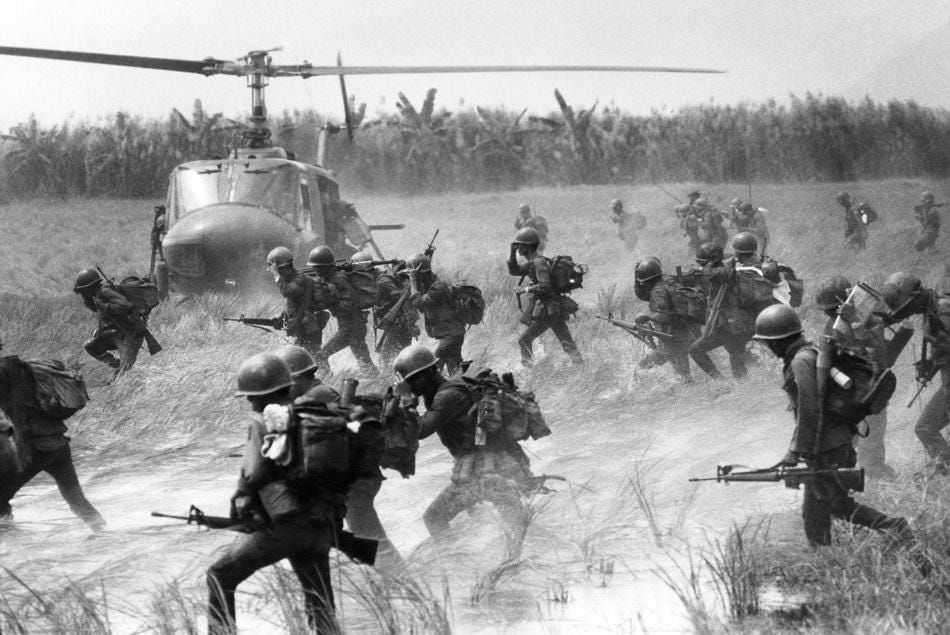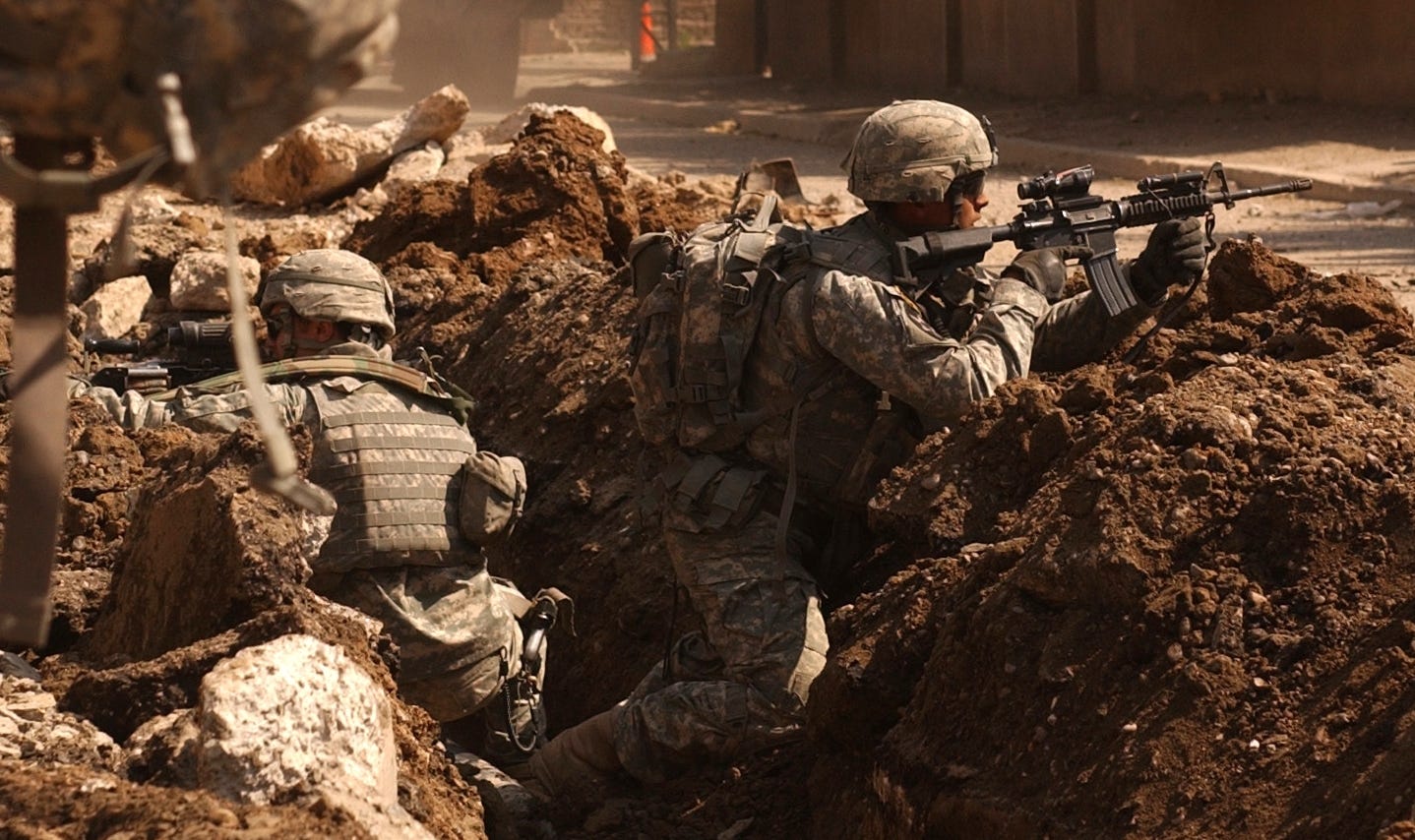Munich, Vietnam, Iraq (delete as applicable)
'International conflicts attract historical analogies the way honey attracts bears'
Wherever we find ourselves living and in whatever company we keep, we are all homesick. There was once a medical term for those with a particularly acute case: nostalgia. Indeed, this was a time when the condition enjoyed a sympathetic ear and was taken so seriously that a diagnosis was sufficient for troops to be relieved of their duties.
Dr Susan Matt, Professor of History at Weber State University and author of Homesickness: An American History, has uncovered more than 5,200 recorded cases during the US Civil War and 74 Union servicemen died of it. Nostalgia was considered such a danger to soldiers that popular songs such as ‘Home Sweet Home’ and ‘Auld Lang Syne’ were prohibited.

With the onset of the 20th century, more people began to move away from home and nostalgia as a medical phenomenon fell out of use. Meanwhile, on the battlefield, terms such as ‘shell shock’ were increasingly being ascribed to soldiers suffering from the psychological traumas of war. And nostalgia gradually became more closely associated with a longing for a lost time.
That period is different for all of us, but predicated on the same principle. It transpires that pretty much everything — movies, music, television and fashion — was better when you were a teenager. This belief is not even restricted to cultural pleasures. A YouGov poll for The Washington Post finds agreement that society was more moral, families happier and communities most close-knit in those formative years.
Unsurprisingly, this stands up for me too. Back in the late 1990s and early 2000s, Arsenal could defend set-pieces, Now That’s What I Call Music was the apotheosis of cool while it certainly felt like a better time to be a diaspora Jew. Then again, I was a kid. Safety could be found all around me. Major life decisions were made on my behalf. And no matter how far I strayed or how late the time, I knew with total certainty that my Dad would always come pick me up.
There is, inevitably, a Taylor Swift verse that perfectly encapsulates the feeling. In her 2010 song, Innocent, the singer asks:
Wasn't it easier in your firefly-catchin' days?
And everything out of reach
Someone bigger brought down to you
Wasn't it beautiful runnin' wild 'til you fell asleep
Before the monsters caught up to you?
We are all products of our time, shaped by the paths both taken and eschewed. This also influences how we interpret global events. International conflicts attract, in the words of former US Secretary of State Alexander Haig, “historical analogies the way honey attracts bears”. They are intended to help politicians and policymakers avoid repeating past mistakes. Two in particular are frequently cited, sometimes in the same breath: Munich and Vietnam.
The former deeply affected the American (and to a lesser extent, given its imperial decline, the British) foreign policy establishment of the era. It hardly needs explaining why — instead of curtailing German rearmament and confronting Adolf Hitler in defence of freedom and sovereignty, there was appeasement. And, of course, war came anyway.
Yet the Munich analogy became midwife to the Vietnam War. It influenced not only John F. Kennedy and Lyndon Baines Johnson but even Dwight D. Eisenhower who, in an April 1954 letter to Winston Churchill seeking UK support for US air and naval power in Indochina, wrote:
“If I may refer again to history, we failed to halt Hirohito, Mussolini and Hitler by not acting in unity and in time. That marked the beginning of many years of stark tragedy and desperate peril. May it not be that our nations have learned something from that lesson?”
As the quagmire of Vietnam ground on — leading to the deaths of almost 60,000 American soldiers and hundreds of thousands of troops and civilians from both North and South Vietnam — a dichotomy emerged. Was this new conflict Munich or Vietnam? Would we be wrong to stay out or get involved?
The success of the 1990-91 Gulf War seemed, for a time, to resolve this analogical tension. Through overwhelming air power, a broad political consensus and consciously limited objectives, coalition forces expelled Saddam Hussein’s army from Kuwait. This was not another Vietnam, but proof that American military might could indeed achieve swift, decisive victories.
However, the Second Gulf War complicated that narrative. Although it didn’t immediately end America’s unipolar moment, it introduced a new analogy — one defined not by clarity of purpose but by mission creep, insurgency and long-term instability: Iraq.
Spend any amount of time on social media (as I have convinced myself I must in order to do my job) in the last few days and you will have seen copious references to that war. And it is not difficult to understand why: weapons of mass destruction, regime change, European irrelevance. And beneath it all, that familiar question — is this another mistake we will only recognise in hindsight?
But while there are parallels, the differences are stark. There is no suggestion of a ground invasion. It is only the latest episode of the ongoing conflict between Israel and Iran, one that did not begin on 7 October 2023, and involves Iranian-funded proxy militias dedicated to the destruction of the Jewish state. Sure, it could end up being as spectacular a strategic blunder as the Iraq War, but for different, country- and time-specific reasons.
No one yet knows the full ramifications of the US strike on Iranian nuclear facilities. We cannot even comprehend how successful those strikes were from an operational perspective. All we know is that lives will change and people will die, but that those people might be different to the ones in a timeline where the US did not join the war, Benjamin Netanyahu did not egg them on, Ali Khamenei did not refuse a new deal, Yahya Sinwar did not orchestrate the 7 October massacre, Donald Trump did not withdraw from the JCPOA — and so on.
Historical analogies, like nostalgia, can provide a fleeting sense of comfort, but they also have the potential to obscure our judgement. They pull us backward, even as the world won’t wait for us to catch up.





